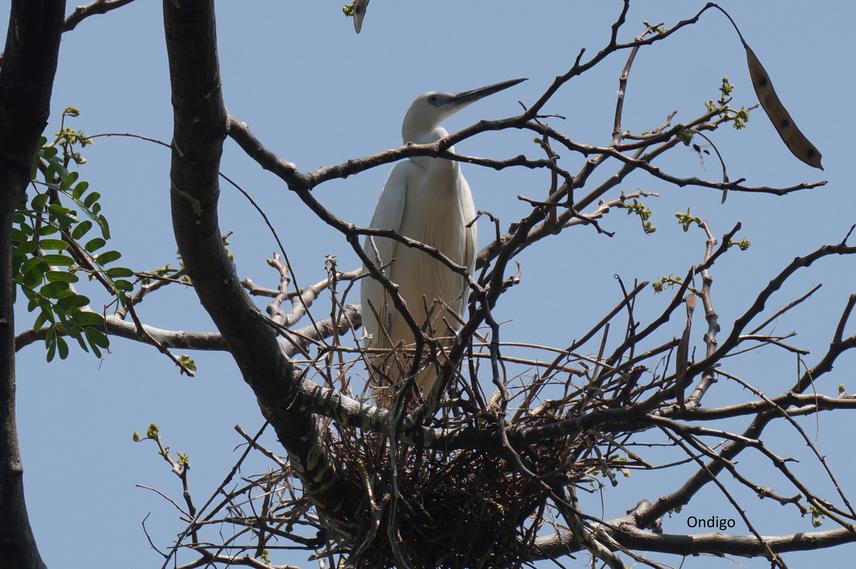Isaac Ondigo
Other projects
16 Apr 2014
Promoting Sustainable Ecosystem Services Utilization for the Conservation of Migori River Basin
This project builds on outputs of the project “Promoting Sustainable Services Utilization for the Conservation of Migori River Basin” (RSG1). For the second funding phase, the project team intends to combine agroforestry and apiculture – two climate smart techniques in building community resilience while promoting biodiversity conservation in Migori River Basin. The project will involve monitoring of previously planted areas, establishment of new planting and incorporation of apiculture. Thus, this initiative is expected to inspire sustainability in current and future conservation initiatives in Migori River Basin and beyond

Little egret in its nest.
This is a 12-month project that aims to take advantage of the mutual benefits offered by both agroforestry and beekeeping (apiculture). The trees will provide forage (nectar, pollen, propolis and honeydew) for bees, protect the bee hives and offer a conducive microclimate for the bees. The bees on the other hand will help in pollination of trees and crops. As such, the project will ensure increased tree cover, a healthy habitat for birds particularly, the near threatened African Crowned Eagle (Stephanoaetus coronatus), insects, reptiles, mammals and endemic fish (Haplochromis sp. nov. Migori); and economic empowerment of the local community. Farmers will obtain honey that they can sell and supplement with income from other sources, hence the economic pressure associated with deforestation and unsustainable exploitation of the ecosystem will be reduced. Also, it is not possible to overemphasize the social costs of the largely irreversible soil erosion which is taking place in Migori basin. Degradation is expected to increase unless remedial measures are swiftly implemented. For this reason we had set up a pilot tree nursery in the first project which was very successful in promoting soil conservation amongst other goals: providing fuelwood, medicine and fodder for livestock. This project will therefore, aim at upscaling and promoting further agroforestry practices for long term conservation gains. Furthermore, the successes and best practices from this project will be communicated to help other communities that face similar ecological and socioecomic challenges.
Moreso, the creative combination of agroforestry and apiculture will be a step towards promoting climate smart agriculture which has been identified as a key concept for mitigation of and adaptation to adverse impacts of climate change. This combination has a value chain rich in opportunities for solving socioeconomic challenges and mitigate against environmental degradation. In the long run, this project will act as a model for helping communities in developing countries to build resilience to climate change through sustainable natural resource management.